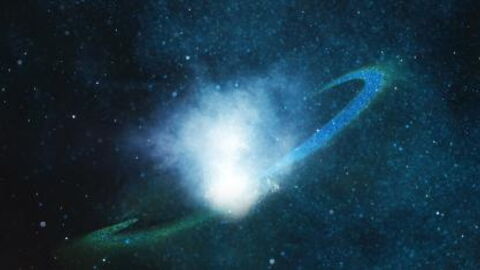Despite years and years of fanciful films promising limitless abilities, it is now well known that time travel or teleporting like inBack to the Future is theoretically possible, but physically impractical to impossible. Still, there is a world in which teleportation is no longer science fiction, and it is that of the infinitely small. Indeed, scientists have achieved an incredible quantum teleportation over nearly 44 kilometres. Here's the how and why.
Discover our latest podcast
What is 'quantum teleportation?'
Research on quantum teleportation is fairly recent. And yet, the phenomenon on which it is based, called 'quantum entanglement phenomenon,' was developed by... Albert Einstein and two other physicists, all the way back in 1935. Paradoxically, Albert Einstein did not really believe in what he called 'remote phantom action' when he in fact described it perfectly.
What you should know is that a quantum teleportation is not the physical teleportation of a particle, but that of its state, its data and properties. That is to say that the modification of a particle in spot A directly influences another particle in spot B, located relatively far. It is as if you were hurting yourself and the person you were 'bonded' to also felt that pain in the same place at exactly the same time. Intriguing, isn't it?
An incredible teleportation over 44 kilometres
Now that you've acquired a better understanding of what quantum teleportation entails, this is what a team of scientists made up of American and Canadian researchers has achieved. Thanks to a simple fiber optic network, which could very well be used today for your everyday Internet, they managed to teleport qbits of photons over a distance of 44 kilometres with 90% fidelity.
The qbit, also called a qubit or qu-bit, is the smallest unit of quantum information storage. It's a bit like the bit in computer science, really, except that instead of being 0 or 1, the qbit can be 0 and 1. It therefore contains more potential information than a single bit.
The beginnings of a new era?
This experiment is a real achievement and could allow great advances in several areas, especially in that of IT and data computation. Imagine for example a 'quantum internet' thanks to which the storage of information would be more important and the system would be leaps and bounds faster but also much more reliable. Indeed, it is impossible for someone to intercept information sent in this way without being detected because to look at this information would be modifying it and the person would therefore be unmasked.
This future is not so distant because the US Department of Energy has announced its intention to set up a national quantum internet in Chicago. This great project could see the light of day in the years to come, but also become common across the world in the medium term.















